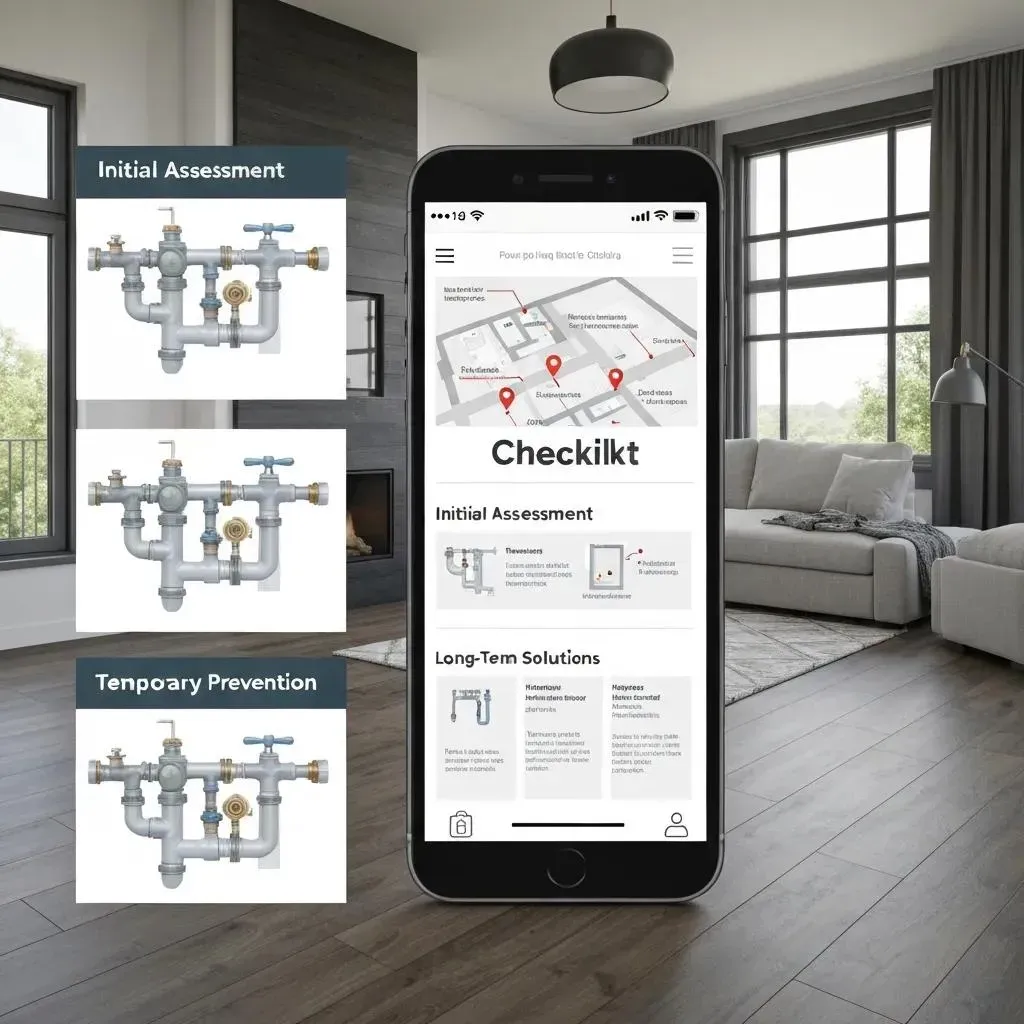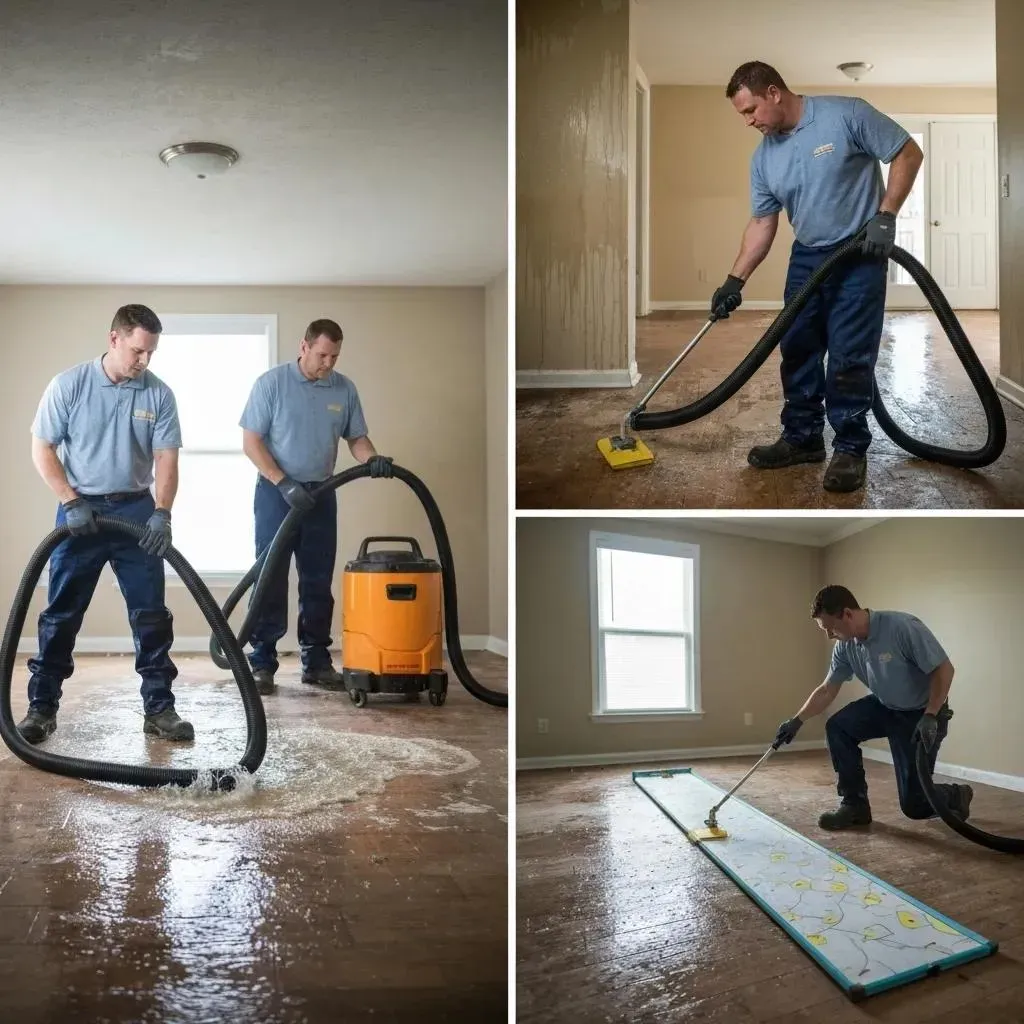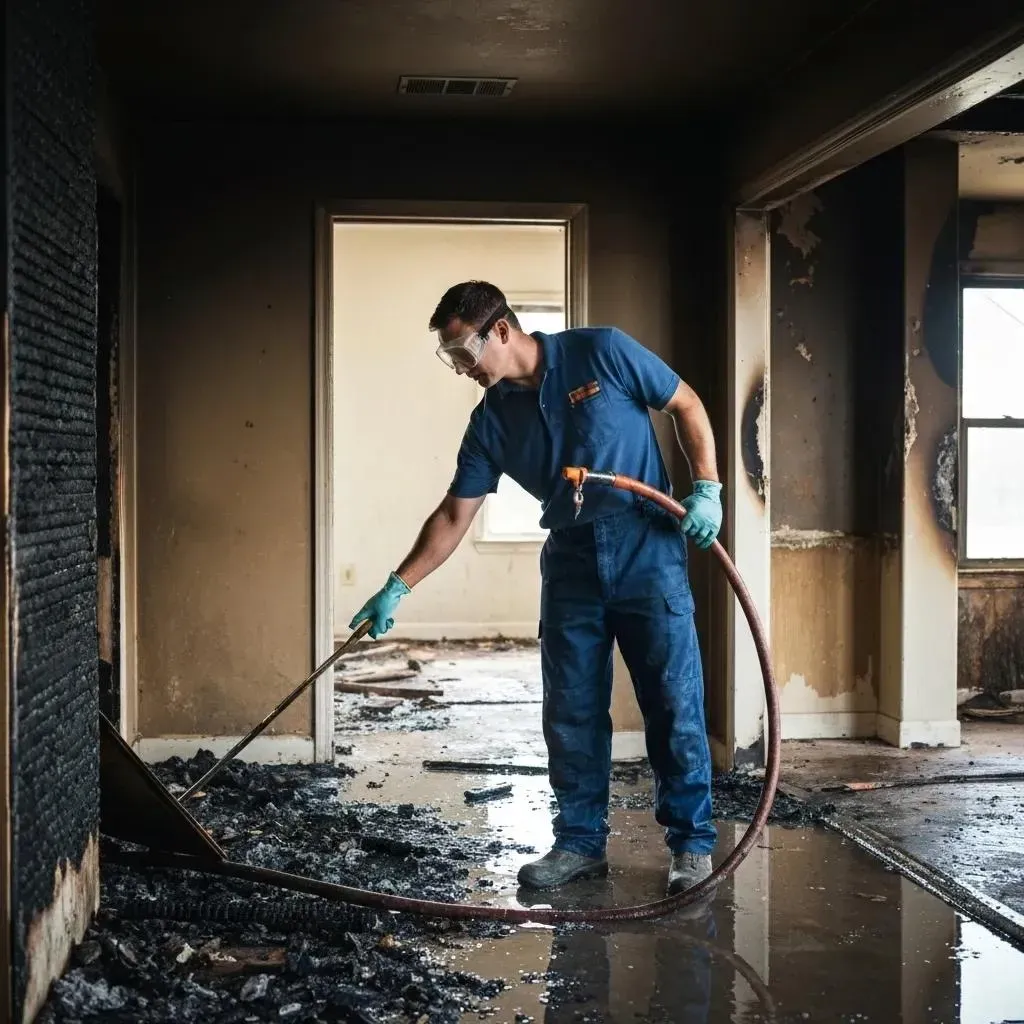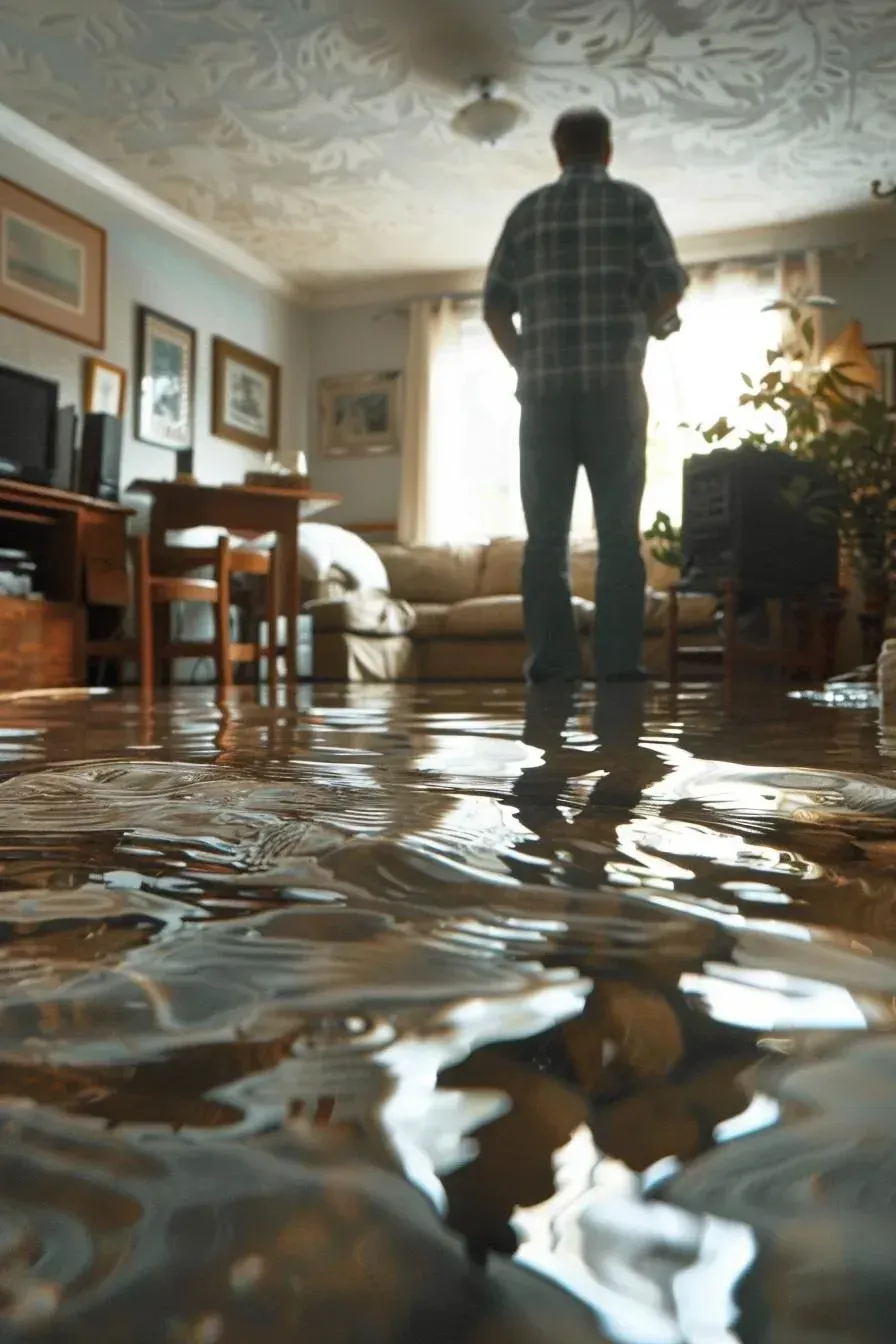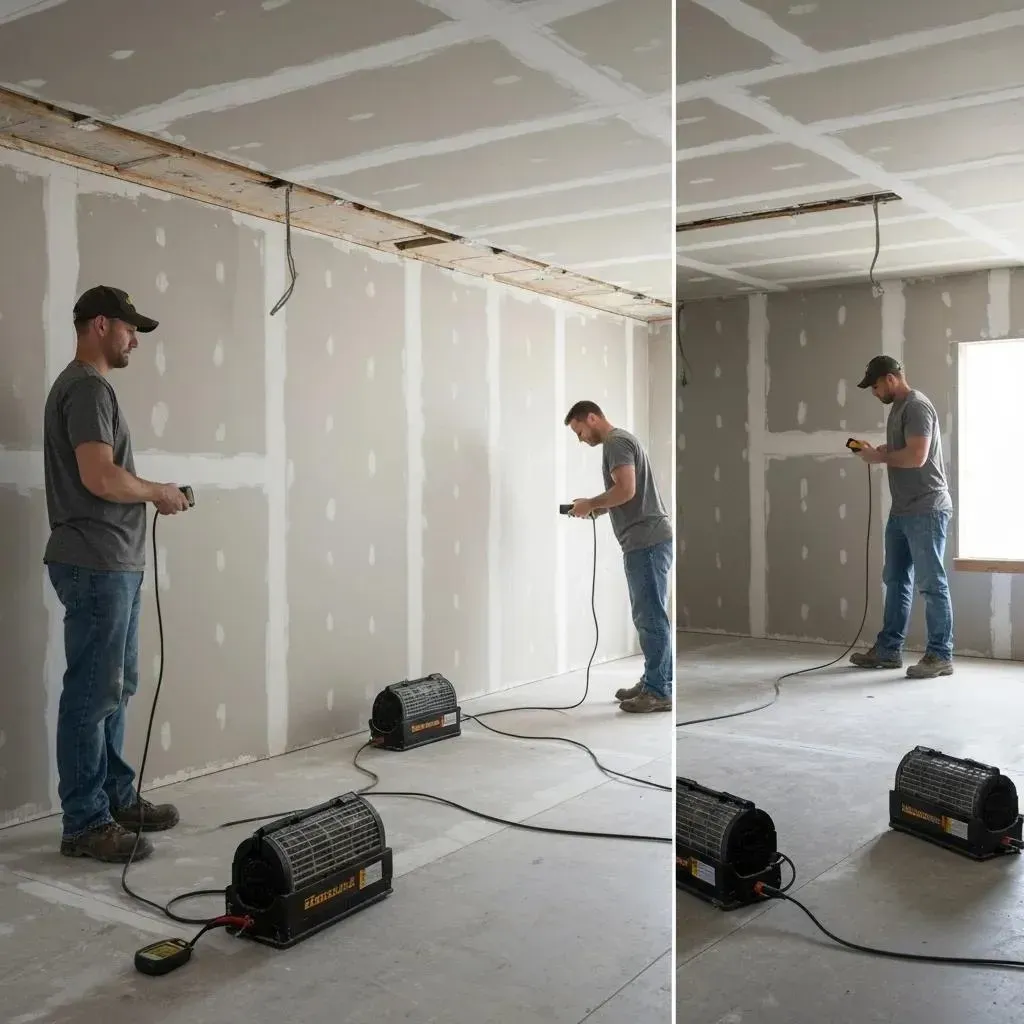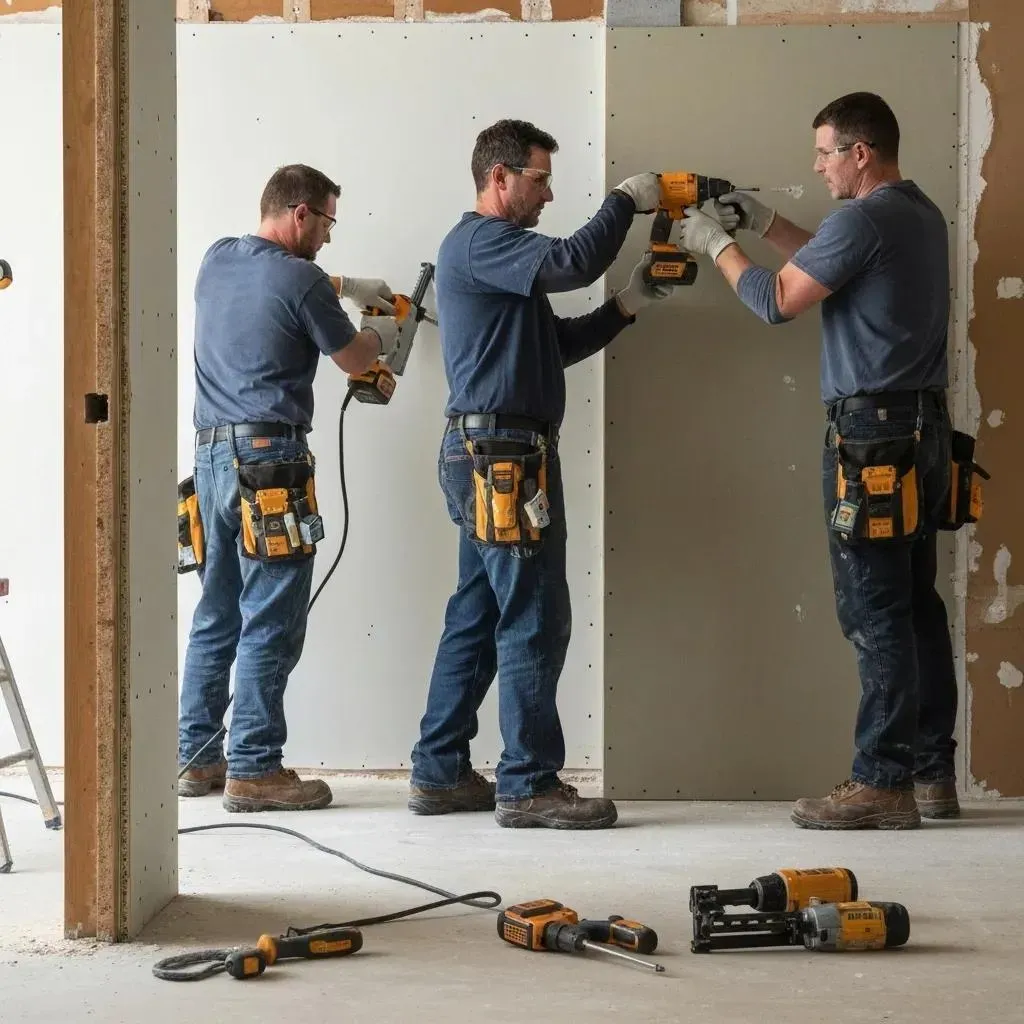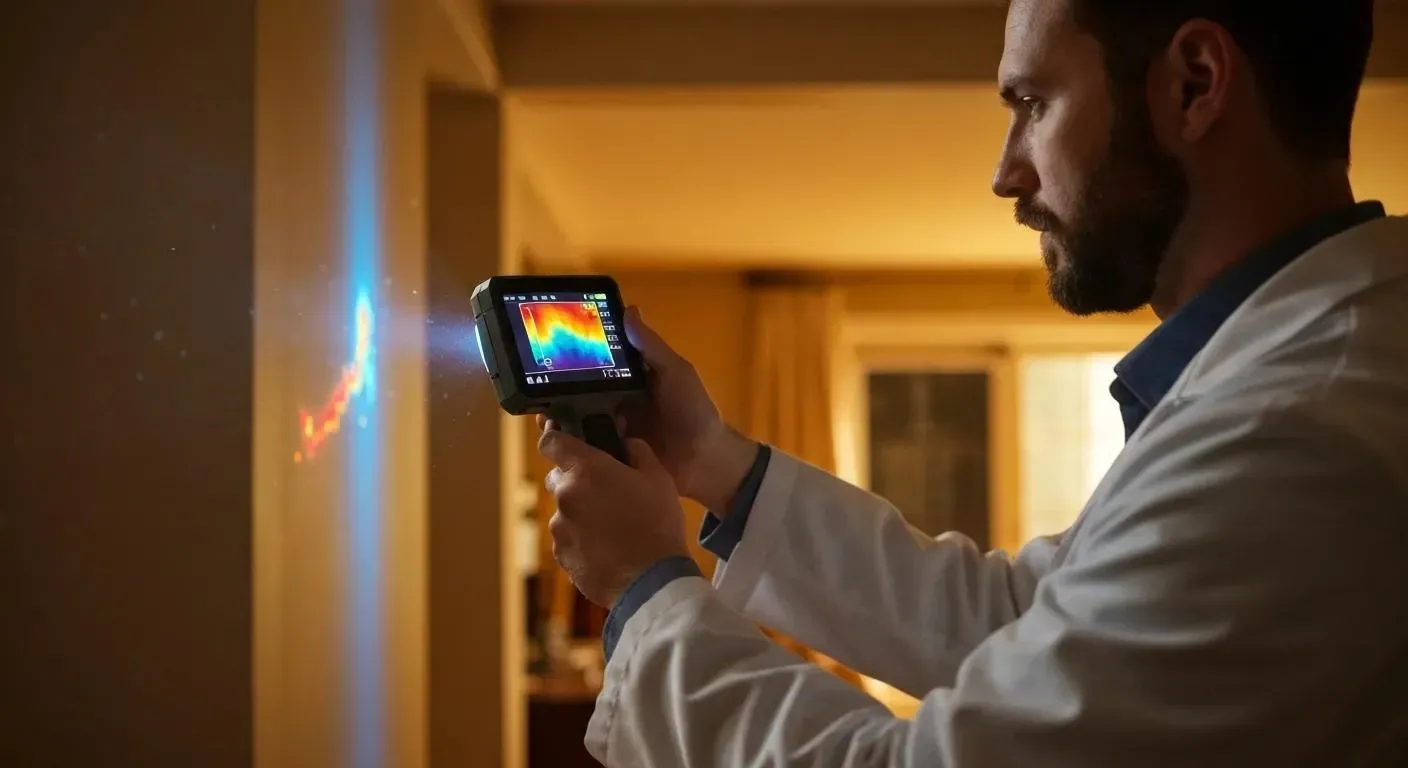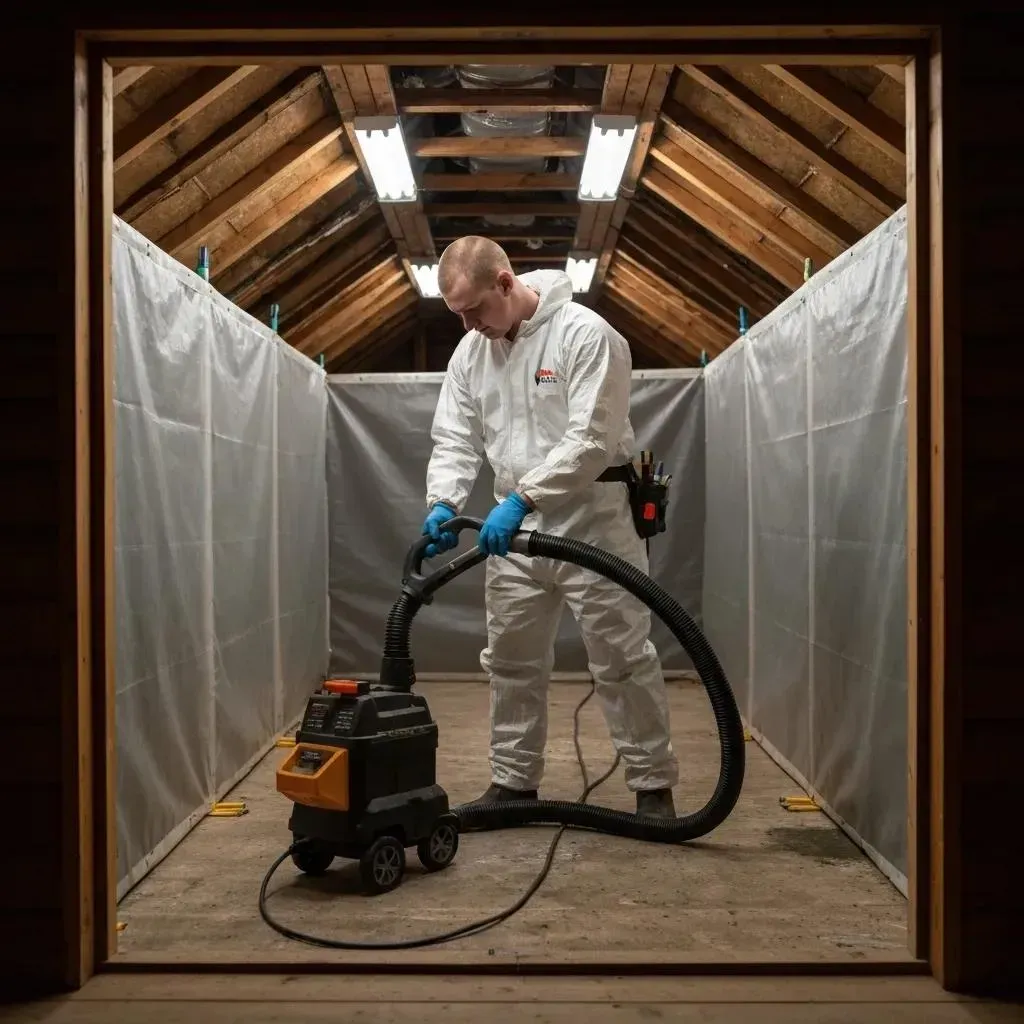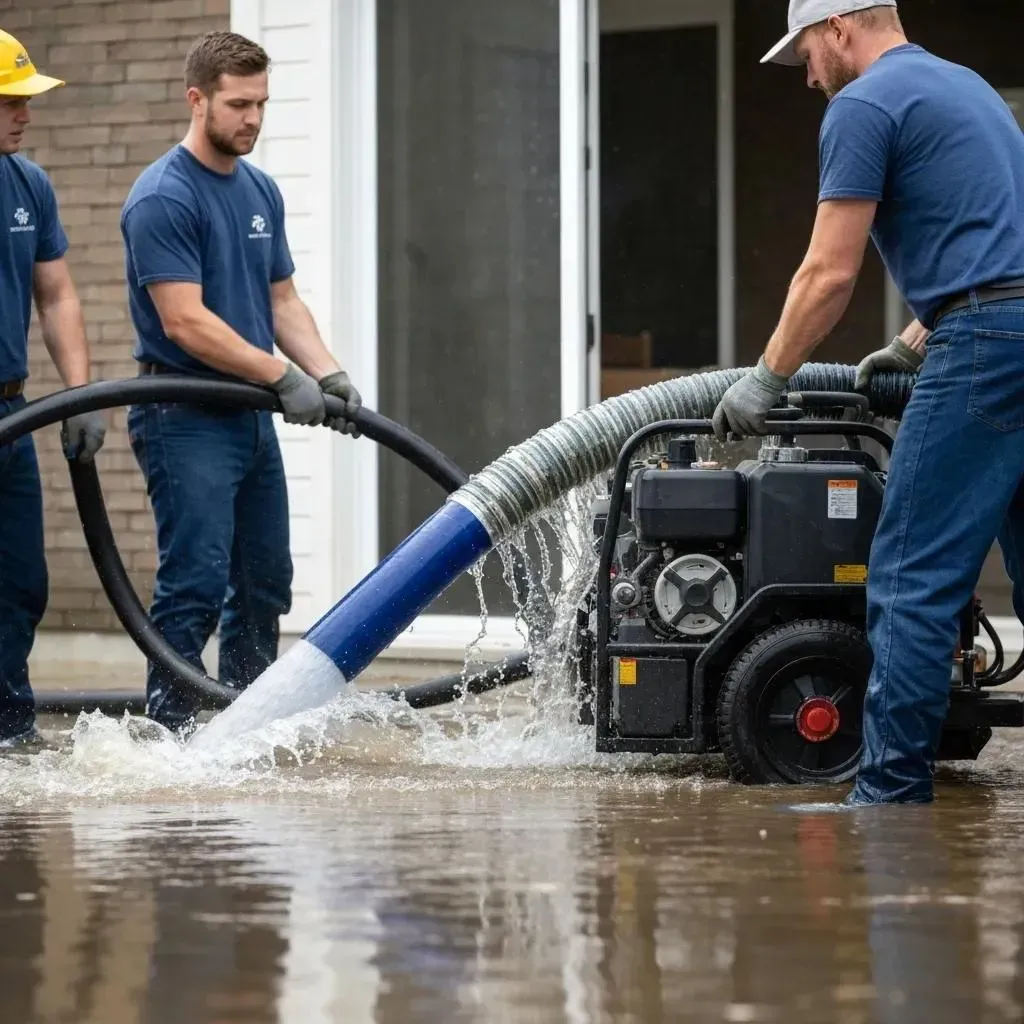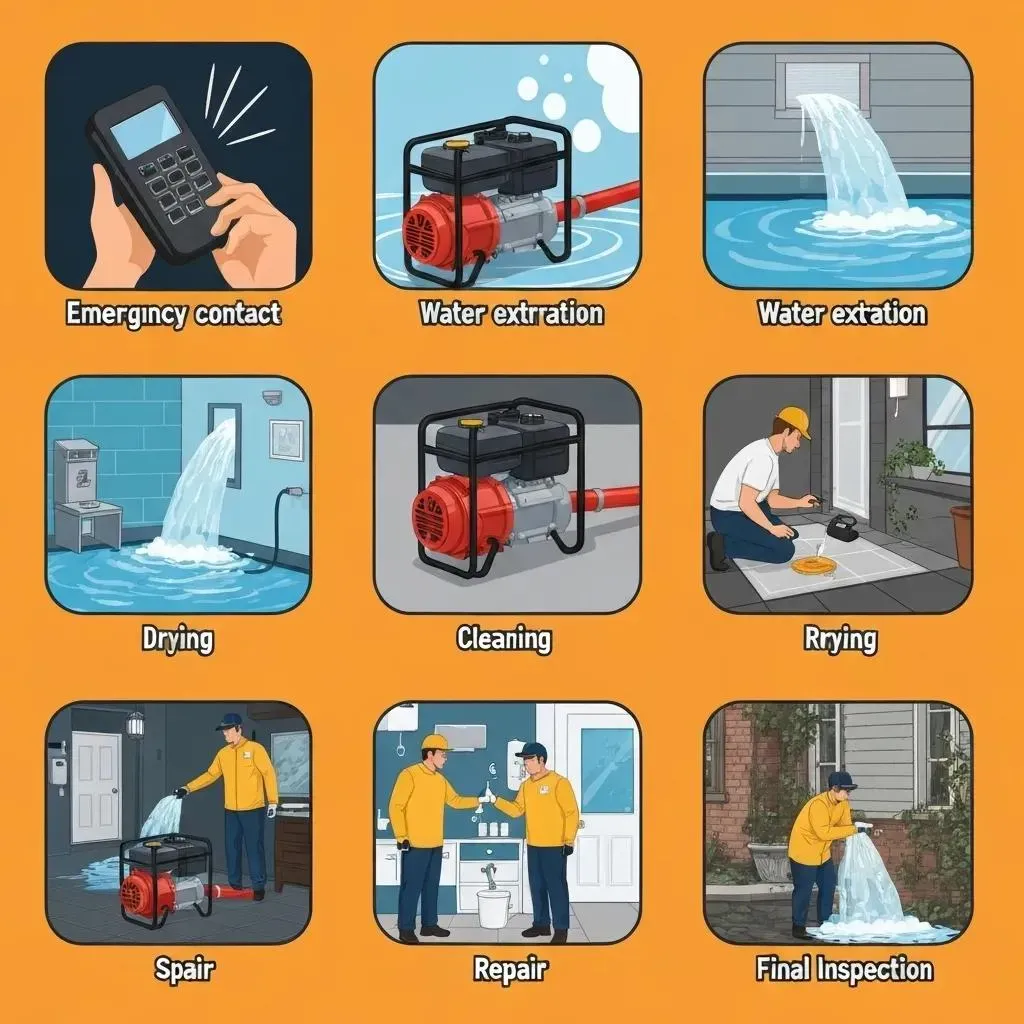Blog
Home water damage repair is an essential service for any homeowner facing the distress of unexpected leaks or flooding. Immediate steps like shutting off the main water line, ensuring electrical safety, and removing valuables can significantly reduce the damage. Professionals can help with everything from water extraction to mold prevention, ensuring a seamless restoration process.
Dealing with water damage can be daunting, but quick action and skilled assistance bring peace of mind. Understanding water damage, restoration, and prevention not only helps in tackling immediate challenges but also in safeguarding your home against future incidents. Regular maintenance, proper insulation, and awareness of insurance coverage are crucial elements in mitigating risks.
I'm Mike Martinez, and with a passion for home restoration and a commitment to helping families recover comfortably, I've led Accountable Home Services in supporting Denver-area homeowners with expert water damage solutions. Let's dig deeper into how you can steer this challenging situation effectively.

Understanding Water Damage
Water damage can happen to anyone , and it's important to know what causes it, the types of water damage, and the risks involved.
Causes of Water Damage
Water damage often results from:
-
Plumbing Failures: Broken pipes, leaking faucets, and overflowing toilets are common culprits.
-
Weather Events: Heavy rains, snowmelt, and floods can lead to significant water intrusion.
-
Appliance Issues: Malfunctions in washing machines, dishwashers, or water heaters can cause leaks.
-
Structural Problems: Roof leaks or poor drainage can allow water to seep into your home.
Types of Water Damage
Understanding the types of water damage is crucial for effective home water damage repair:
-
Category 1: Clean Water
- Originates from sources like broken water supply lines or overflowing sinks.
- Poses minimal risk if addressed quickly.
-
Category 2: Gray Water
- Contains some contaminants from appliances like dishwashers or washing machines.
- May cause discomfort or illness if ingested.
-
Category 3: Black Water
- Highly contaminated with harmful agents, often from sewage backups or floodwaters.
- Requires prompt and professional cleanup due to health risks.
Risks of Water Damage
Water damage can lead to:
-
Structural Damage: Prolonged exposure to water can weaken your home's foundation and structure.
-
Mold Growth: Mold can develop within 24-48 hours, posing health risks like allergies and respiratory issues.
-
Electrical Hazards: Water exposure can lead to dangerous electrical malfunctions.
-
Decreased Property Value: Unaddressed water damage can reduce your home's market value.

Understanding these factors can help you address water damage promptly and effectively. In the next section, we'll explore the home water damage repair process to guide you through recovery.
Home Water Damage Repair Process
Addressing water damage in your home requires a structured approach. Here’s a step-by-step guide to help you steer the repair process effectively.
Step 1: Identify and Stop the Source
Before any repairs can begin, it's crucial to identify and stop the source of the water damage. This might mean locating and repairing leaks, burst pipes, or malfunctioning appliances. Use shut-off valves to stop water flow immediately. In cases of severe weather, ensure all windows and doors are sealed to prevent further intrusion.
Step 2: Ensure Safety
Safety is paramount when dealing with water damage. Water and electricity are a dangerous mix. Turn off electricity to affected areas to prevent electrical hazards. Equip yourself with protective gear such as gloves and boots to protect against contaminants in the water. If structural damage is apparent, such as sagging ceilings or cracked walls, avoid those areas until professionals can assess the risk.
Step 3: Document the Damage
Thorough documentation is crucial for insurance claims. Take photos and videos of all affected areas, focusing on structural damage, furniture, and personal belongings. Create a detailed inventory of damaged items, noting their value and purchase date if possible. This documentation will be invaluable when filing insurance claims and ensuring you receive the appropriate compensation.
Step 4: Begin Drying and Cleanup
Once it's safe, start the drying and cleanup process. Remove any standing water using wet-dry vacuums or buckets. Employ dehumidifiers and air movers to reduce humidity and accelerate drying. Use moisture meters to detect hidden water in walls and floors. This step is critical to prevent mold growth and further structural damage.
Step 5: Check for Mold Growth
Mold can begin to grow within 24 hours of water exposure. Conduct a thorough inspection of all affected areas, including hidden spaces like behind walls and under floors. If mold is detected, professional remediation is recommended to safely remove it and prevent health risks. Mold not only affects air quality but can also cause extensive damage if left unaddressed.
By following these steps, you can effectively manage water damage in your home. Proper action not only mitigates immediate damage but also prevents long-term issues like mold and structural weakening.
Costs and Insurance for Home Water Damage Repair
Home water damage repair can be a significant financial burden, but understanding the costs and insurance coverage can help ease the process.
Average Costs
The cost of repairing water damage varies widely based on the severity and type of damage. Minor water damage repairs might cost between $3,000 and $5,000, while moderate damage could range from $7,000 to $10,000. For severe cases, involving extensive structural repairs or mold remediation, costs can exceed $20,000. Factors influencing these costs include:
- Extent of Damage: More extensive damage means higher costs.
- Type of Water: Clean water is easier and cheaper to clean than sewage or contaminated water.
- Materials Affected: Repairing hardwood floors or drywall can be more expensive than carpet or tile.

Insurance Coverage
Homeowners insurance typically covers sudden and accidental water damage, such as burst pipes or appliance failures. However, it often excludes gradual damage due to poor maintenance or flooding, which requires separate flood insurance.
- Burst pipes
- Appliance malfunctions
- Storm damage
Excluded Scenarios:
- Gradual leaks
- Poor maintenance
- Flooding
It's crucial to review your policy and understand what is covered. Some policies might have sublimits for water damage, which can limit your payout.
Claims Process
Filing an insurance claim for water damage involves several steps:
-
Documentation: As mentioned earlier, take detailed photos and videos of the damage. Include everything from structural issues to damaged personal items.
-
Contact Your Insurer: Notify your insurance company as soon as possible. Provide them with your documentation and any additional information they require.
-
Assessment: An insurance adjuster will evaluate the damage to determine the claim's validity and the amount covered.
-
Repairs: Once approved, you can begin repairs. Keep all receipts and records of the work done for reimbursement.
-
Follow-Up: Stay in touch with your insurer to ensure the claim is processed smoothly and inquire about any additional steps needed.
By understanding the costs and insurance processes, you can better prepare for the financial implications of water damage. This knowledge empowers you to make informed decisions and ensures you receive the compensation you're entitled to.
Next, we'll explore Preventing Future Water Damage, offering tips to safeguard your home against potential water-related issues.
Preventing Future Water Damage
Preventing water damage in your home starts with regular maintenance and smart investments. Here’s how you can protect your home effectively:
Plumbing Maintenance
Regular plumbing maintenance is your first line of defense against water damage.
-
Inspect Pipes: Routinely check visible pipes for leaks, corrosion, or wear. Fix any issues immediately to prevent bigger problems.
-
Replace Old Hoses: Appliance hoses, especially those connected to washing machines or dishwashers, can crack over time. Replace them at the first sign of wear.
-
Winterize Pipes: In colder climates, insulate pipes to prevent freezing and bursting. Leave faucets dripping during extreme cold to maintain water flow.
Water Sensors
Water sensors are a smart investment for early detection of leaks.
-
Install in High-Risk Areas: Place water sensors near appliances, under sinks, and in basements. These sensors alert you to leaks before they become major issues.
-
Smart Sensors: Consider smart water sensors that connect to your phone. They provide real-time alerts, even when you’re away from home.
Sump Pumps
A sump pump can be a lifesaver, especially in areas prone to flooding.
-
Install a Reliable Sump Pump: Ensure your basement is equipped with a sump pump to handle unexpected water intrusion.
-
Battery Backup: Choose a sump pump with a battery backup to keep it working during power outages.
Additional Tips
-
Gutter Maintenance: Keep gutters and downspouts clear of debris to ensure proper water flow away from your home.
-
Proper Grading: Ensure the ground around your home slopes away from the foundation to prevent water from seeping inside.
-
Regular Inspections: Schedule professional inspections for your plumbing and structural systems to catch potential issues early.
By implementing these preventive measures, you can significantly reduce the risk of water damage in your home. Next, we'll address Frequently Asked Questions about Home Water Damage Repair, providing you with answers to common concerns and scenarios.
Frequently Asked Questions about Home Water Damage Repair
Can water damage be fixed in a house?
Yes, home water damage repair is possible and often necessary to restore your home. The process typically involves several steps: restoration, repair, and cleaning. Restoration includes removing any standing water and drying out affected areas using fans and dehumidifiers. Repair focuses on fixing damaged structures like walls and floors. Cleaning involves sanitizing areas to prevent mold and bacteria growth.
Quick Tip: The faster you start the restoration process , the better. Mold can start developing within 24 to 48 hours after water exposure.
How long does it take to dry out walls from water damage?
Drying time varies based on several factors, such as the extent of the damage, the type of materials affected, and environmental conditions like humidity and temperature. Typically, it can take anywhere from a few days to over a week to dry out walls completely.
Techniques:
- Air Movers: These fans speed up evaporation by creating high-velocity airflow across the surface.
- Dehumidifiers: They remove moisture from the air, helping to dry out walls faster.
- Moisture Meters: These devices help monitor the drying process and ensure that walls are thoroughly dry before repairs.
Does insurance cover water damage in a house?
Insurance coverage for water damage depends on the cause of the damage and your specific policy. Generally, sudden and accidental water damage, like a burst pipe or a washing machine overflow, is covered. However, insurance often excludes damage due to neglect, maintenance issues, or natural flooding events unless you have a separate flood insurance policy.
Key Points:
- Covered: Burst pipes, accidental overflows, storm-related damage.
- Exclusions: Gradual leaks, poor maintenance, natural floods without specific flood insurance.
For accurate guidance, review your insurance policy and consult with your provider to understand what is covered and what isn't. This knowledge will help you make informed decisions and avoid surprises during the claims process.
By addressing these common questions, homeowners can feel more informed and prepared to tackle water damage issues effectively. Up next, we’ll explore the Costs and Insurance for Home Water Damage Repair, helping you steer financial aspects and claims.
Conclusion
When faced with water damage, having a reliable partner by your side can make all the difference. That's where Accountable Home Services steps in. As a family-owned business serving the Denver Metro Area, we understand the stress and urgency that comes with water damage. Our team is ready 24/7 to provide professional help and guide you through the entire restoration process.
Peace of Mind with Professional Help
Choosing Accountable Home Services means choosing peace of mind. Our certified technicians use the latest equipment and adhere to strict safety standards to ensure that your home is restored quickly and efficiently. We handle everything from water extraction and drying to mold prevention and structural repairs. Plus, we offer direct insurance billing to minimize your stress during this challenging time.
Why Choose Us?
- Expertise: Our team is trained and certified to handle any water damage scenario, ensuring a thorough and professional restoration.
- Reliability: We offer 24/7 emergency response, so you can count on us to be there when you need us most.
- Transparency: We maintain open communication with you throughout the process, so you're always informed about what's happening in your home.
- Comprehensive Services: Beyond water damage repair, we offer full-service home improvement solutions custom to Colorado’s unique climate and homeowners’ needs.
With Accountable Home Services, you can trust that your home is in good hands. We are committed to providing high-quality craftsmanship and reliable solutions that protect and improve your property.
Ready to restore your home and regain peace of mind? Contact Accountable Home Services today for expert water damage restoration services. Let's get your home back to its best.

